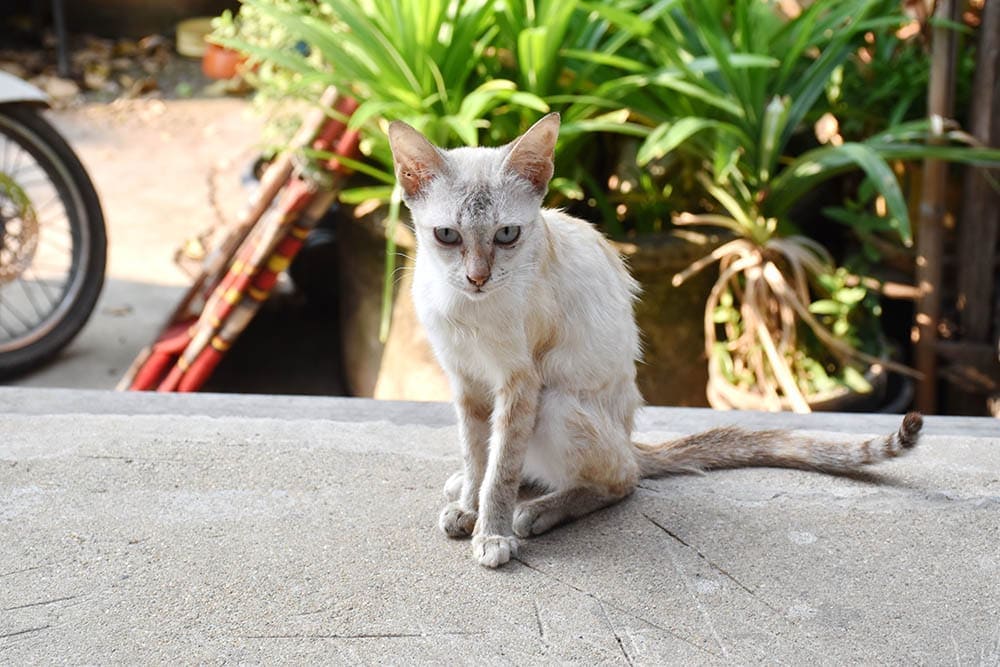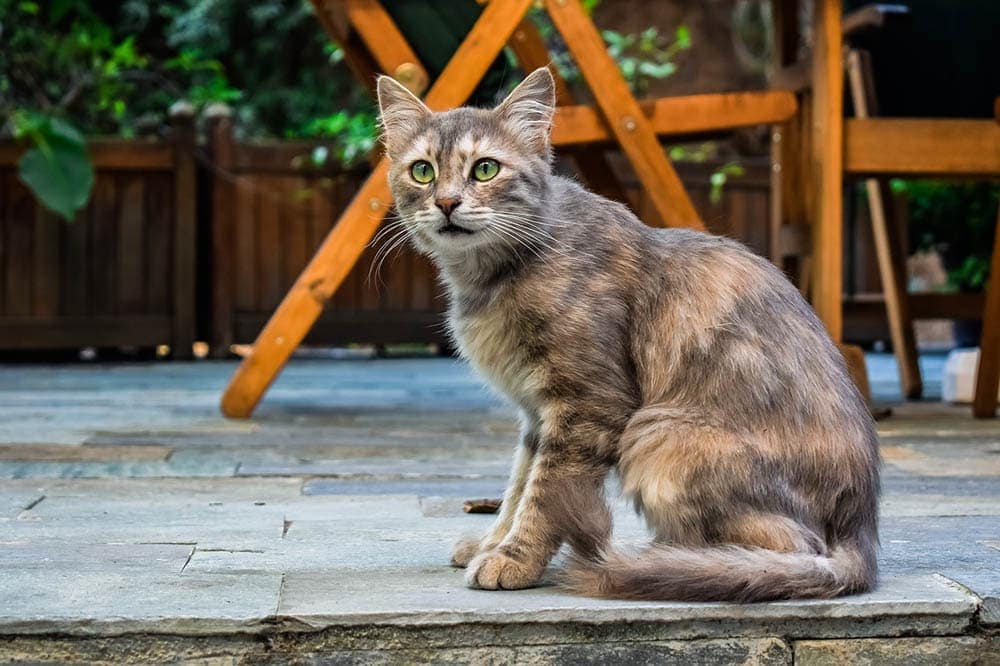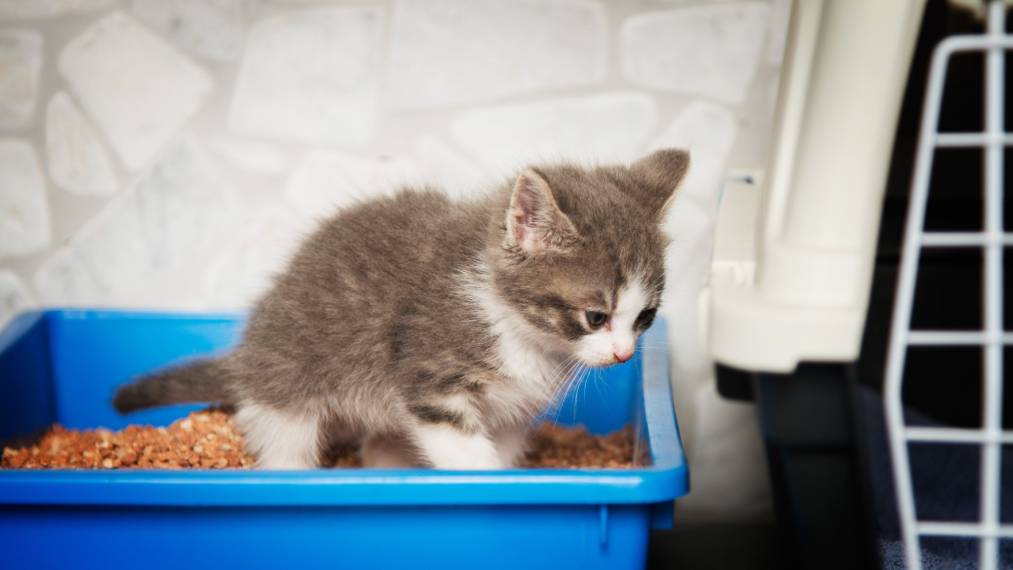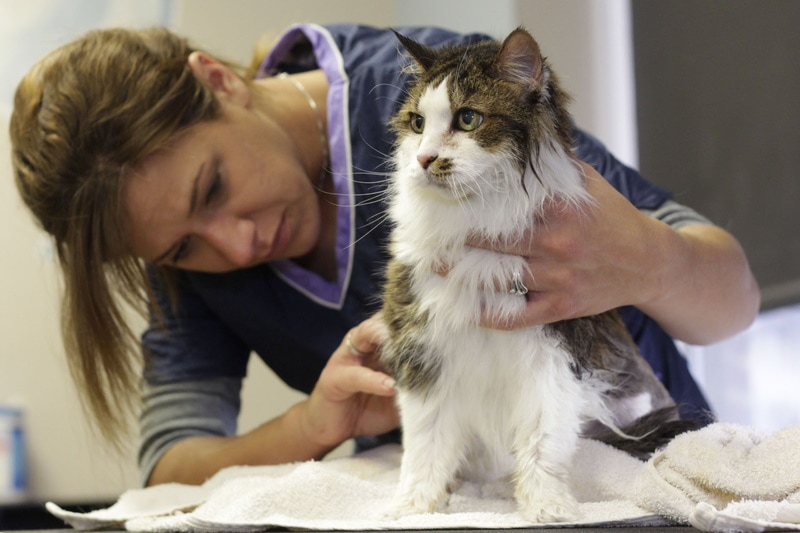How to Tell if Your Cat Is Underweight: 3 Vet-Reviewed Ways
Updated on

Cats are finicky animals. They are not good at indicating whether they are feeling well or going through health problems. One sign that a problem is brewing is weight loss. If your cat is losing weight or has been underweight since you got them, it is important to understand what is happening so you can figure out how to correct the problem. Here is how you can tell whether your cat is underweight or not.
The 3 Ways to Tell if Your Cat is Underweight
1. Pay Attention to Their Body
A big indicator of whether your cat is underweight is the structure of their body. If your cat shows their ribs and seems to easily buckle under physical pressure, chances are that they are underweight. Even if your cat does not show their ribs, they may be underweight. You might be able to tell if they act more lethargic or seem weak.
Their body might move more slowly, or it may seem like their body has become frail with more prominent bony structures. If your cat does not look robust, there is a chance that they are underweight or are experiencing a health problem that requires the attention of a veterinarian.

2. Keep an Eye on Their Food Intake
If you suspect that your cat is becoming underweight, it is important to keep an eye on their food intake each day. Take notes if necessary, so you have reliable records to rely on if you need to work with a veterinarian to make your cat healthier and get back to a normal weight. Even if your cat leaves just a few bites of food in the bowl when they do not usually do so, it is worth noting in your records to share with a vet later if necessary.
If you notice that your cat is eating less of their food each day and that they are losing weight, the problem might be with the food. You may want to try another quality commercial food. If your cat starts eating like they used to again, they may be able to avoid a serious health problem due to being chronically underweight.
We would also like to hand you a tool to know how much you should feed your cat to maintain their health:
The exact amount of calories an individual animal needs to maintain a healthy weight is variable and influenced by many factors including genetics, age, breed, and activity level. This tool is meant to be used only as a guideline for healthy individuals and does not substitute veterinary advice
3. Consult With a Veterinarian
The only real way to know for sure whether your cat is suffering from being underweight is to work with a veterinarian. . Your vet can determine if your cat is underweight by evaluating their body condition score. If they are not underweight, your vet can help determine what else may be going on by doing diagnostics such as bloodwork and x-rays.
If your cat is indeed underweight, your vet can figure out why the problem is developing and how to go about correcting it. This might include food suggestions, feeding plans, medications, or even just daytime scheduling changes to help your cat gain back weight and become healthy again. If nothing else, the vet can give you ideas of how to improve your cat’s appetite at home, even if they are suffering from a terminal illness.

Final Thoughts
Most cats do not become underweight unless a health problem arises. If you suspect that your cat is losing weight for no good reason, it is important to contact your veterinarian to schedule a checkup appointment. If your cat will not eat while waiting for your vet appointment, try offering them sodium-free chicken or beef broth or tuna juice to entice them.
Related Reads:
Featured Image Credit: Benchamaporn Kanlapungha, Shutterstock













